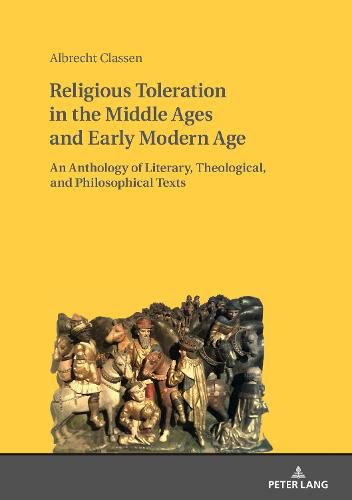Readings Newsletter
Become a Readings Member to make your shopping experience even easier.
Sign in or sign up for free!
You’re not far away from qualifying for FREE standard shipping within Australia
You’ve qualified for FREE standard shipping within Australia
The cart is loading…






More than ever before do we need the critical engagement with religious tolerance. Historical perspectives allow us to gain access to the discourse on this universal, often very contested topic. Already the Middle Ages and the early modern age witnessed the emergence of significant voices addressing toleration, if not even tolerance. This anthology opens many new perspectives toward this centrally important topic, adding a cultural-historical, religious, literary, and philosophical dimension mostly unknown today.
Albrecht Classen reminds us in this volume that, we all know just too well that the survival of the human species and its future development depends existentially on its ability and willingness to subscribe to the fundamental ideals of at least toleration, if not tolerance. As with others of Classen’s works on the full range of medieval and early modern culture, this book could not be more timely or more urgently needed, especially for its positive approach to a highly volatile topic.
Fidel Fajardo-Acosta, Creighton University, Omaha, NE
$9.00 standard shipping within Australia
FREE standard shipping within Australia for orders over $100.00
Express & International shipping calculated at checkout
More than ever before do we need the critical engagement with religious tolerance. Historical perspectives allow us to gain access to the discourse on this universal, often very contested topic. Already the Middle Ages and the early modern age witnessed the emergence of significant voices addressing toleration, if not even tolerance. This anthology opens many new perspectives toward this centrally important topic, adding a cultural-historical, religious, literary, and philosophical dimension mostly unknown today.
Albrecht Classen reminds us in this volume that, we all know just too well that the survival of the human species and its future development depends existentially on its ability and willingness to subscribe to the fundamental ideals of at least toleration, if not tolerance. As with others of Classen’s works on the full range of medieval and early modern culture, this book could not be more timely or more urgently needed, especially for its positive approach to a highly volatile topic.
Fidel Fajardo-Acosta, Creighton University, Omaha, NE